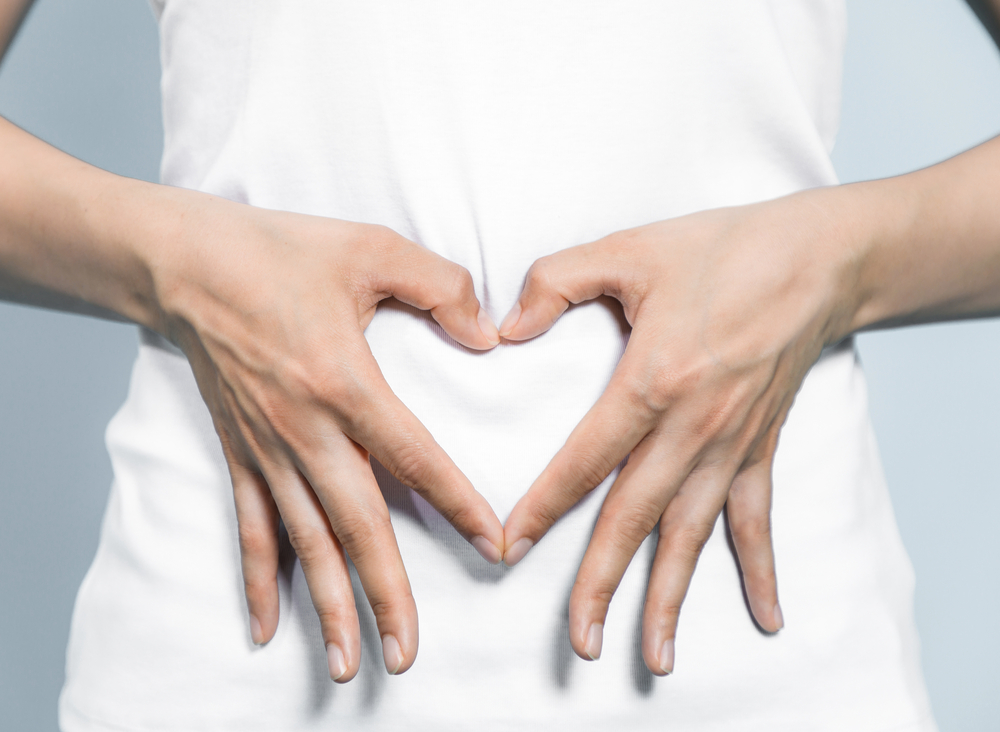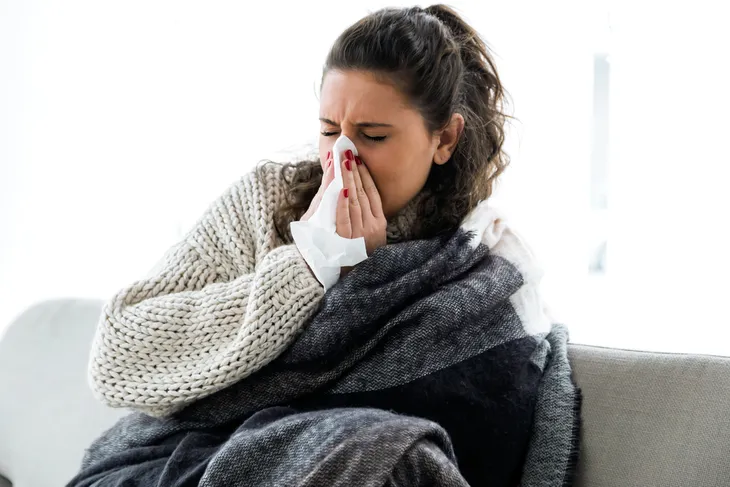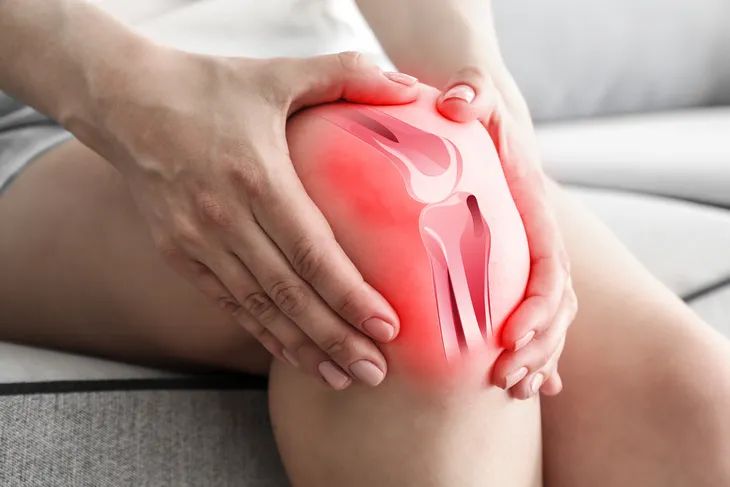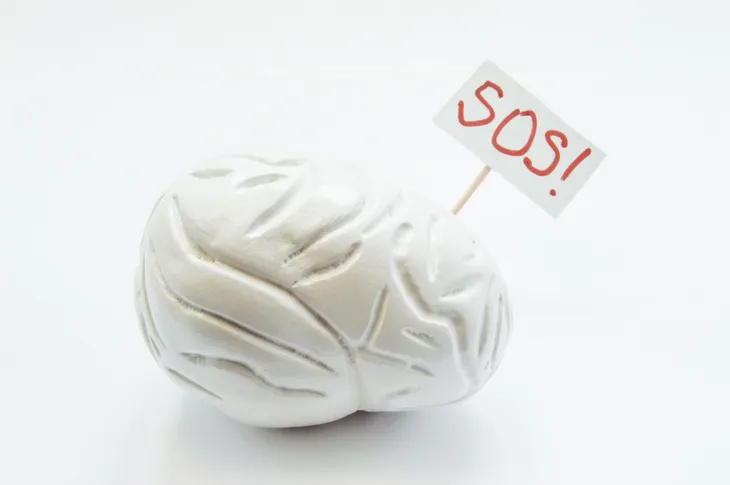Most of us are aware that what we put into our bodies will have an effect on our health, but there is more and more evidence that links your gut health to other health problems – including mental illness.
Improving the conditions in your gut may take cutting out certain foods and adding others, including those that contain probiotics that have been shown to be positive for gut health. Here are 12 signs the bacteria in your gut are unhappy…
Want diet & nutrition content delivered straight to your inbox? Sign up for our exclusive diet & nutrition newsletter!
Stomach Feels ‘Off’
If you are constantly fighting symptoms of diarrhea, constipation, bloating, nausea or heartburn, then know they are “classic symptoms of problems in the gut,” explains Reader’s Digest.
These gastrointestinal symptoms can be especially pronounced after eating a carbohydrate-rich meal due to poor absorption, it adds. The source says conditions like inflammatory bowel disease, irritable bowel disease, and colitis have all been linked to “an imbalance in the microbiome” within the gut.
Immune System is Compromised
Prevention explains that 70-percent of your immune system resides in your gut, so it’s no surprise that if there’s an imbalance there, you could leave the door open to illnesses. (Learn more by reading our article on How Your Gut Health Impacts Your Overall Health).
The source says the “thin, sticky mucus that lines your GI tract is made up of immune cells,” as well as other immunity components. If you find yourself calling in sick to work often with colds and other illnesses, then there’s a “good chance” this gastrointestinal system is out of whack, it adds. The source suggests eating more fiber-rich fruits, vegetables, and whole grains while scaling back on sugary snacks.
Unhealthy Food Cravings
If you’re constantly daydreaming about icing-covered cupcakes and sugar cookies, your brain could be telling you there’s a problem with your gut, explains Reader’s Digest. “Craving foods, especially sweets and sugar, can mean you have an imbalance of gut bacteria,” it notes.
The source blames the cravings on the growth of yeast in the system, which feeds off sugar and signals to your brain to give it more. This imbalance in “good” gut bacteria can be from taking antibiotics, it adds. Eating more sugar can cause more yeast development, resulting in a nasty loop that’s tough to break.
Joint Rashes
A “blistery” and itchy rash that appears on your elbows and knees might be mistaken for a condition called eczema, but in reality it might actually be celiac disease which makes you hypersensitive to gluten found in wheat products.
The rash from celiac disease is known in the medical community as dermatitis herpetiformis, and “it’s not always accompanied by GI symptoms,” says Prevention. Gluten causes an immune response that attacks the intestines, but the antibodies that are released as a result can also gather in vessels under the skin and present like a skin problem rather than a gut problem, it adds.
Joint Pain
Aside from possibly having a rash on your elbows and knees, you may be experiencing pain in your joints as a result of your gut imbalances, explains LiveStrong.
It says the theory that the gut microbiome can affect immune responses outside of the GI tract is fairly new, but it could be a reason why many people suffer from rheumatoid arthritis, which is an autoimmune disease that attacks the joints.
Weight Loss or Gain
Reader’s Digest says certain types of gut bacteria can lead to weight loss – especially when it occurs in the small intestine, which is actually a condition called small intestine bacterial overgrowth (SIBO).
This overgrowth of microbes in the small intestines can interfere with absorption of key vitamins, minerals, as well as fats, it adds. On the other hand, some unfriendly types of bacteria have been linked to weight gain, “as certain microbes are able to harvest more calories from foods than others,” it adds.
Gut Bacteria and Your Brain
If you’re experiencing symptoms of anxiety, you may not need medication or therapy – you may just have an unhealthy environment in your gut (although you should probably let a doctor sort this out to be sure).
LiveStrong says there’s “strong evidence that the gut and brain communicate,” citing a recent paper that concludes gut microbes “regulate brain chemistry in a way that affects how we respond to stress and anxiety.” Research is starting to uncover that people with anxiety or depression have “altered” gut flora, it adds. Taking certain probiotics may reduce cortisol levels from stress, while managing anxious behavior, says the source.
Your Smile is Less Bright
Sure, this can be a sign of poor oral hygiene or that you’re consuming foods that can stain teeth (like coffee or red wine), but discoloration or dullness of the teeth can also be a clue that not all is well within your gut, explains Prevention.
Losing enamel from your teeth – the back teeth in particular from acid coming up your esophagus – can be a sign of gastroesophageal reflux disease (GERD), which can be controlled by diet modifications or prescription medications, it adds.
Diarrhea from Antibiotics
Antibiotics have many benefits when it comes to fighting off certain bacterial infections, but in the process there could be some unwanted results such as killing off the “good” bacteria in your gut, explains LiveStrong.
“Without enough good bacteria, bad bacteria can grow out of control, creating toxins that hurt the gut, trigger inflammation and cause diarrhea,” it explains. If you’re taking antibiotics for a medical problem, then you might want to scoff down some yogurt or other foods containing probiotics during the course of treatment to help maintain a healthier balance, it adds.
Do not take probiotics or eat yogurt close to when you take your antibiotics. It isn’t effective when you take them too close together. Recommendation is to take at least a few hours apart, says Julie Ching, registered dietitian.
Chronic Fatigue
There can be many reasons you’re feeling tired and listless all the time, but don’ t cross gut bacteria off that list. Prevention explains your fatigue may be tied to small intestinal bacterial overgrowth (SIBO), which causes high levels of bad bacteria in your gut and can present symptoms such as fatigue and achiness.
The source says some studies suggest more than 20-percent of the population has SIBO, which can also interfere with your body’s ability to process essential vitamins and nutrients that would normally boost your energy levels. It suggests asking your doctor for a blood test to check for any deficiencies.
Insomnia
Your ability to fall asleep and stay asleep is tied to serotonin, a brain neurotransmitter that is also linked to mood. “Not having enough serotonin can lead to bouts of insomnia or difficulty getting to sleep,” explains Reader’s Digest.
It also says that poor gut bacteria balance can lead to other problems such as fibromyalgia, which is a painful and chronic condition that definitely won’t help you get to sleep any easier.
Sensitivities to Certain Foods
LiveStrong explains, “Food sensitivities are diverse and have their own world of mysteries,” but they could be tied to unhealthy gut bacteria. You might have to work with a registered dietician to pin down which foods are causing you problems, it adds.
“What experts in the field do know is that promoting good bacteria in the gut can help with some food sensitivities, such as lactose intolerance,” it adds. It cites a paper in the British Journal of Nutrition that credits probiotics with assisting in absorption of lactose (from dairy products).















